Your donation will support the student journalists of Wiregrass Ranch High School. Your contribution will allow us to purchase equipment and cover our annual website hosting costs.
A world without privilege
My voyage through one of the smallest countries in South America.
February 15, 2022
As my winter break rapidly came into view, an unorthodox winter vacation broke all my hopes of a white Christmas. Contrary to the typical Floridian vacation to a snow-filled state during the end-of-year holidays, my family traveled below the equator to a small country in South America. Guyana, which borders Venezuela, Brazil, and Suriname, is the country where both of my parents spent their childhood before starting a new life in the US.
No more than 83,000 square miles and with a population of less than 1 million, this third-world country served as an unforgettable trip where my perspectives were scrambled. So rarely, as a resident of Wesley Chapel for all my life, do I get to step out and take a look at the vast world where the simplicities of my own community seem like treasures in another. In preparation for the trip, which my subconscious viciously dreaded, my family and I made certain to pack every first-world necessity for rainforest living, as the country at large is surrounded by swathes of swamp which readily seem equipped to swallow you entirely. And with these, we set out to explore.
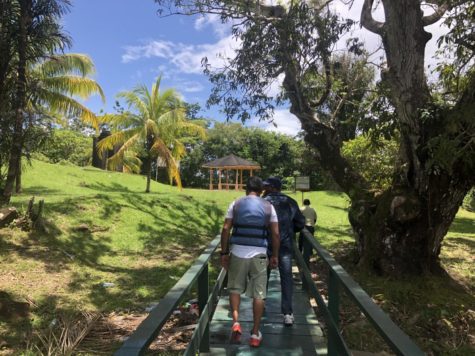
Poverty amidst poverty
As much I cringe at the thought of being snobby and privileged, I couldn’t help but feel like it in every moment I spent in this remote land so disparate from my daily life. Although we aren’t the wealthiest in the world, my family was able to experience more in Guyana than the majority of natives living there. Despite being a significant portion of the beautiful Amazon rainforest, many residents of Guyana do not have the money or resources to explore it on their own.
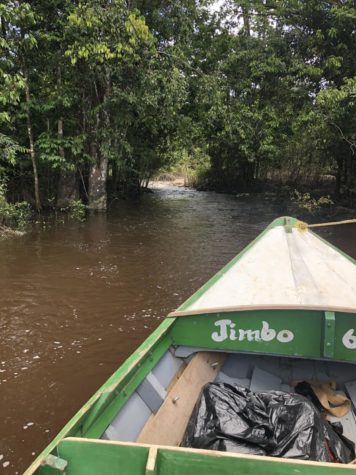
The main modes of transportation in Guyana include taxis, which travel between certain villages, and of course other negligible forms such as horses, bicycles, and boats. Agricultural work serves as the primary occupation for many households in more remote villages and it is the responsibility of all family members to help.
The bulk of buildings typically have no air conditioning and the infrastructure of the country as a whole is poor. Interactions between villages are difficult as the country is primarily connected by a single 2-way road throughout. Although this road split off when in villages, the entirety of my journey through Guyana was made on these few roads and boats which are often not available to impoverished citizens of the country.
As steep as it may sound, poverty in this country can mean certain life or death, as the possibilities of opportunities arising are harsh. As these realities began to unfold in front of my eyes in the 21st century, I became disconcerted with the insignificant fears and uncertainties I fill my life with. Celebrities, social media, and drama are the least of worries for these people. Rather they fill their homes with the necessities of life and carry on each day as such.
Beauty in nature
Guyana’s extensive jungle, however, is certainly a mesmerizing portion of the bountiful life in the Amazon Rainforest. The sheer depth of these thick forests that surround this small country proves that there are still places on this Earth that remain almost completely unscathed from human interaction.
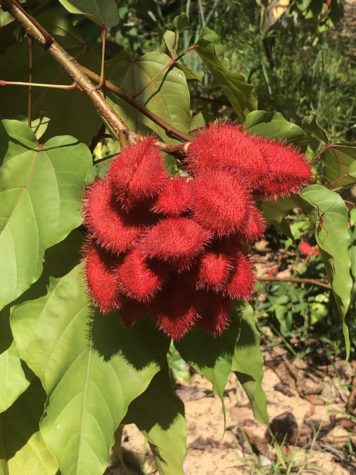
Approximately 85% of Guyana’s total land area is engulfed in rainforests. Unharmed by our immense population, Guyana’s wildlife has significantly high biodiversity and unimaginably low deforestation. In some parts of this country, it seems that nature rules over humans, governing the bounds of their living and the quality of their infrastructure. However, Guyanese peoples walk hand-in-hand with nature, balancing the fine line of comfortable living whilst taming the world around them.
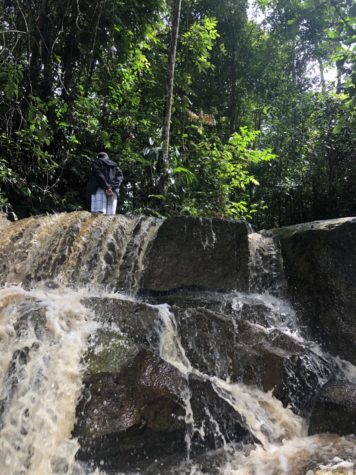
It seems to me that only my ancestors and current natives are able to populate an environment with such harsh conditions. Guyana constantly remains at risk of detrimental floods, as most of the countries coastline lies 6 feet below sea level, and is protected by a seawall that acts as a 280-mile coastal defense system. The tropical climate and intense moisture give rise to hordes of mosquitoes that could bite for hours. As people who were initially brought over as slaves, these people managed to create a home in an otherwise unlivable country.
The beauty of Guyana lies in the rarity of seeing so much nature completely untouched, the way Mother Nature directly intended it to be. Many historical landmarks from the Dutch and British are largely abandoned and remain on negligible islands with populations merely in the double digits. To see nature still intact and in its most natural state, truly allows a once-in-a-lifetime experience to thoroughly enjoy it in all its glory. This, and I’m sure many natives would agree, makes Guyana truly alluring.
Advantage of simplicity
As I peered into many people’s lives, those of which I have never nearly imagined before, I came to recognize something missing from each of these people. When I looked into each of their eyes, young or old, their blank stares seemed as though they were ignorant of a certain aspect of life: this, I came to realize, was privilege.
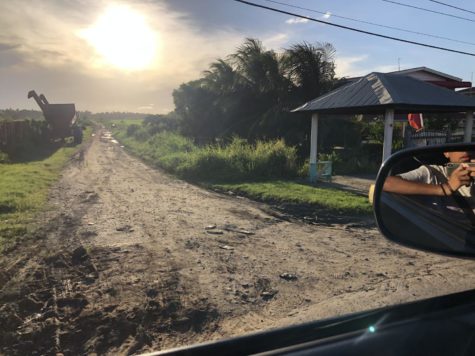
Now don’t misunderstand my interpretation of the living conditions in this country. It is possible in Guyana, as is anywhere in the world, to have nice possessions and a clean dwelling. Throughout my trip, I met many sincerely kind people, people who I have never met before but still greeted my family and me with love and hospitality. Many of the stops we made into homes along the way were for people who filled my parents’ childhood, and some who they haven’t seen for decades. However, they never hesitated to fill our guts with delicious food and great conversation.
In many ways, this country proves the sheer resilience of mankind. To have Indian people brought over to the middle of a rainforest, places where the Dutch and British were to0 afraid to inhabit themselves, and force them to extract resources for their own gain is dreadful. Nevertheless, my ancestors conquered this massive swamp and were able to create a small independent country through painstaking, studious labor.
Guyanese people continue to thrive and are able to find comfort in their homes so far from their roots. They aren’t driven by greed but instead believe they are never short of anything. They lead their lives with simplicity, which many of us in the U.S. may see as Venician.
Although they may not have the luxuries of our modern world, they live without a concept of what they lack. Ultimately, isn’t this what we all strive for? Whether it comes from ignorance of the opportunities out there or from the undying greed of materialistic things, we all are just searching for satisfaction in our lives. In terms of being readily satisfied with our own worldly possessions, my home country wins.
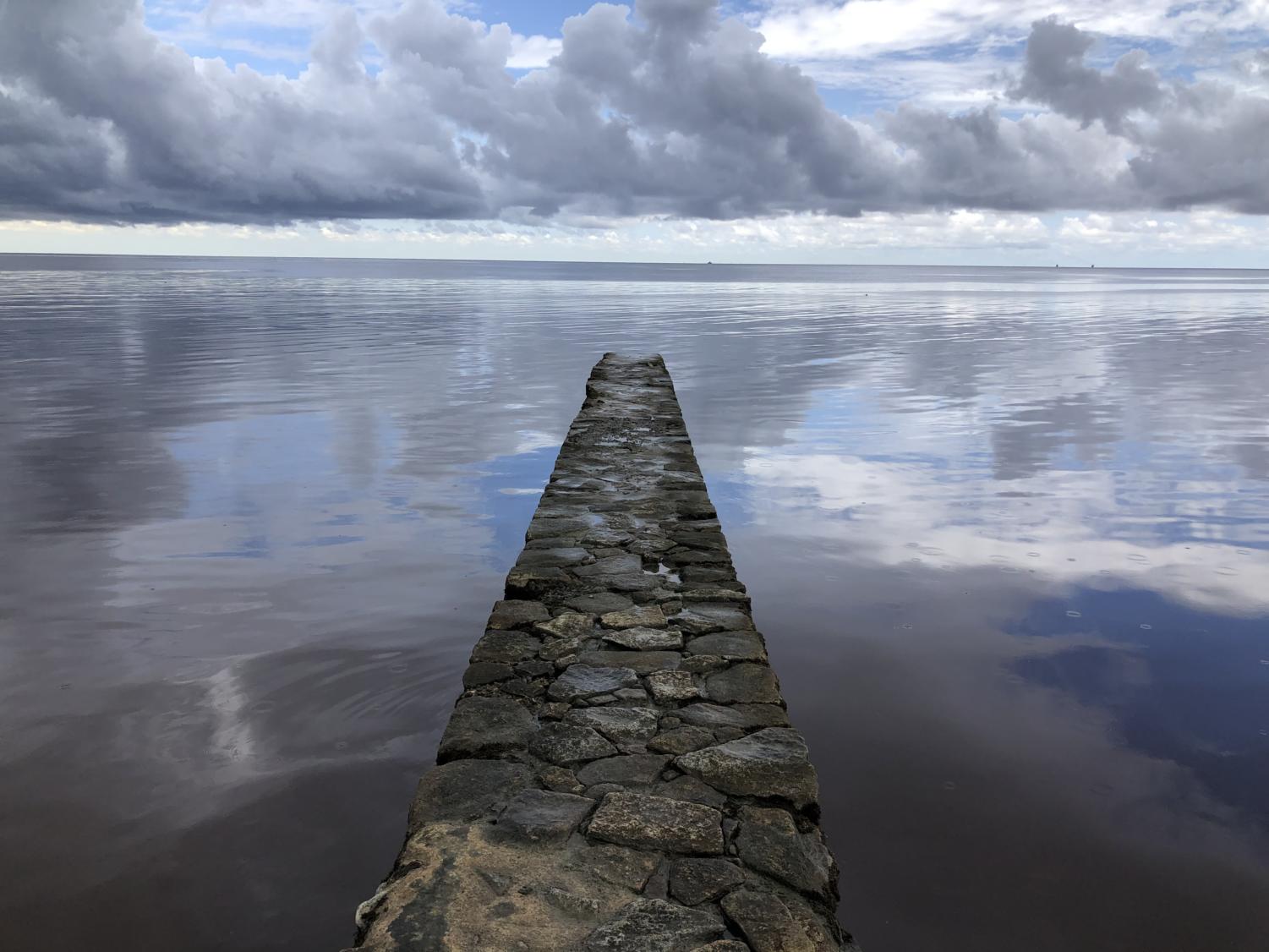
Krook • Feb 18, 2022 at 7:53 am
Beautiful article, Ashton. Great writing here. Thanks for sharing your adventure and the insight it provided. I think we can all take something from this 🙂